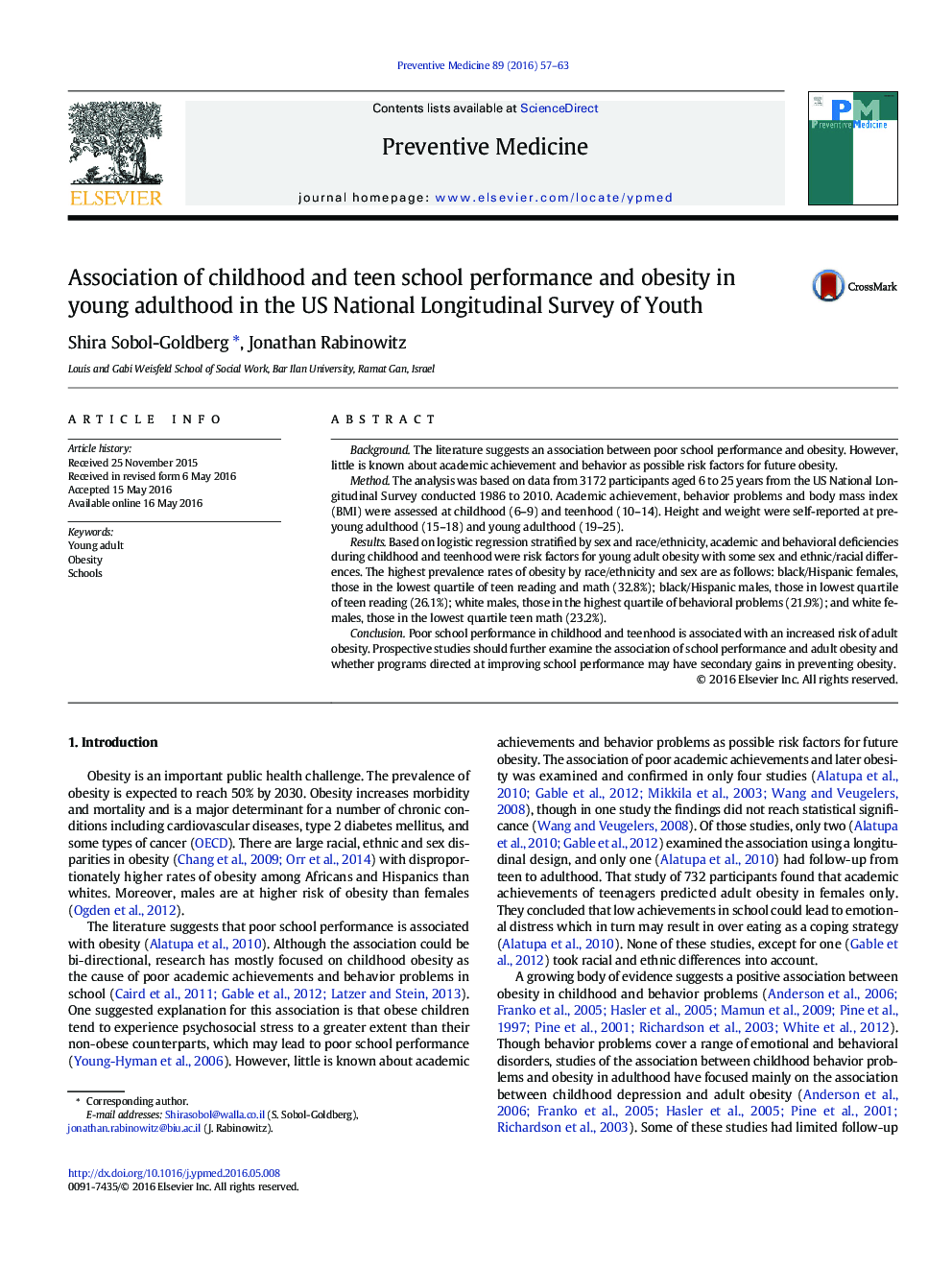| Article ID | Journal | Published Year | Pages | File Type |
|---|---|---|---|---|
| 6046177 | Preventive Medicine | 2016 | 7 Pages |
â¢Poor school performance in childhood and teenhood is a risk factor for adult obesity.â¢Risk factors for obesity differ by sex and race/ethnicity.â¢Interventions for improving school performance might reduce obesity risk.
BackgroundThe literature suggests an association between poor school performance and obesity. However, little is known about academic achievement and behavior as possible risk factors for future obesity.MethodThe analysis was based on data from 3172 participants aged 6 to 25Â years from the US National Longitudinal Survey conducted 1986 to 2010. Academic achievement, behavior problems and body mass index (BMI) were assessed at childhood (6-9) and teenhood (10-14). Height and weight were self-reported at pre-young adulthood (15-18) and young adulthood (19-25).ResultsBased on logistic regression stratified by sex and race/ethnicity, academic and behavioral deficiencies during childhood and teenhood were risk factors for young adult obesity with some sex and ethnic/racial differences. The highest prevalence rates of obesity by race/ethnicity and sex are as follows: black/Hispanic females, those in the lowest quartile of teen reading and math (32.8%); black/Hispanic males, those in lowest quartile of teen reading (26.1%); white males, those in the highest quartile of behavioral problems (21.9%); and white females, those in the lowest quartile teen math (23.2%).ConclusionPoor school performance in childhood and teenhood is associated with an increased risk of adult obesity. Prospective studies should further examine the association of school performance and adult obesity and whether programs directed at improving school performance may have secondary gains in preventing obesity.
